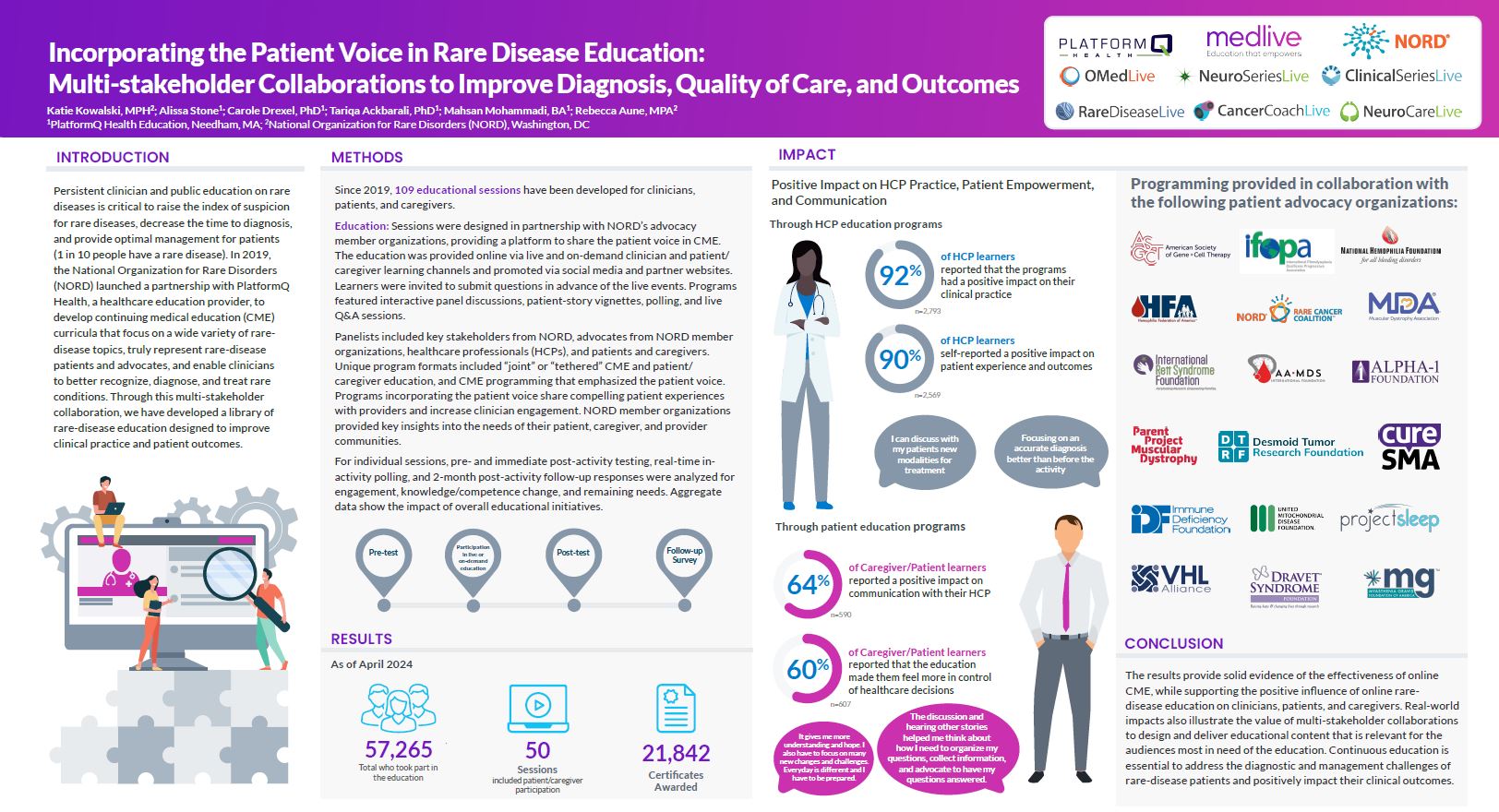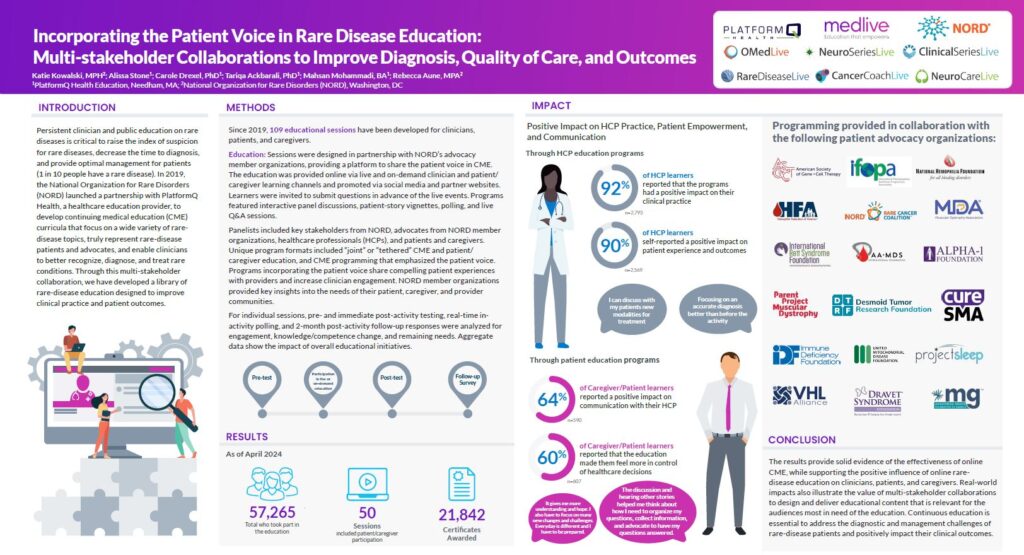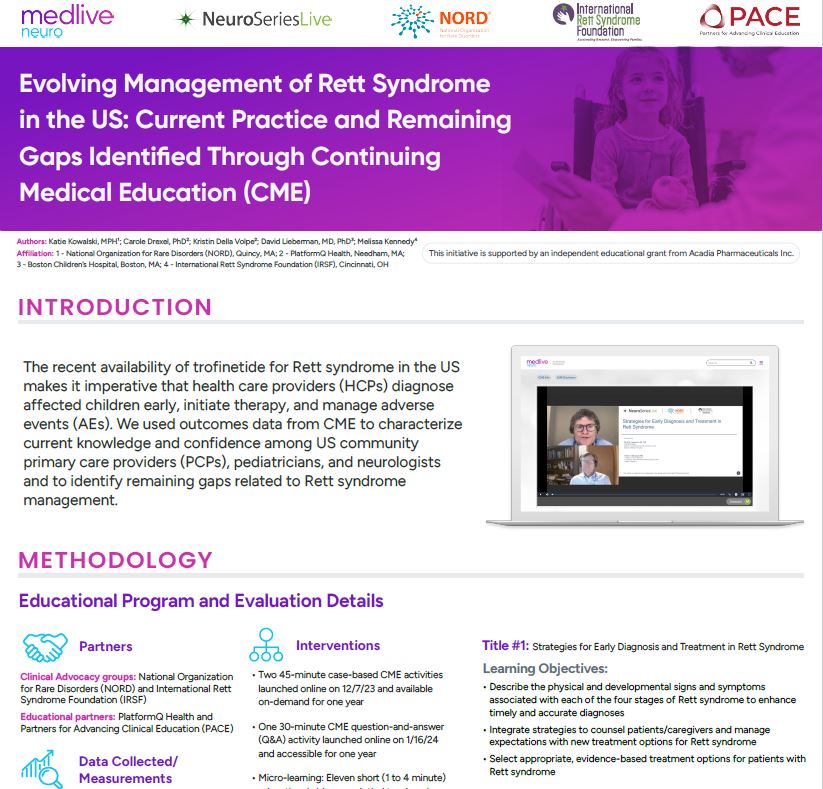PlatformQ Health is known for its outcomes-driven education. At this year’s European Conference on Rare Diseases, we co-presented two posters highlighting outcomes and lessons learned from recent programming.
Rare disease education
People with rare diseases often wait years for a correct diagnosis. Ongoing education of clinicians and the general public is crucial to raising the index of suspicion for rare diseases. In 2019, PlatformQ Health and the National Organization for Rare Disorders teamed up to develop continuing medical education on a wide range of rare diseases. Together, the organizations created a library of rare disease educational materials designed to improve clinical practice and patient outcomes. To date, 109 educational sessions have been created for clinicians, patients, and caregivers.
 Led by leading subject matter experts in the field, the sessions also provide a platform to share the patient voice through live panel discussions and videos of patients sharing their experiences. Programs with patient voice have improved knowledge retention and learner engagement.
Led by leading subject matter experts in the field, the sessions also provide a platform to share the patient voice through live panel discussions and videos of patients sharing their experiences. Programs with patient voice have improved knowledge retention and learner engagement.
- 92% of clinicians report that the programs had a positive impact on their clinical practice and 90% shared that the programs had a positive impact on patient experiences and outcomes.
- 64% of patients and caregivers reported that the programs had a positive impact on their communication with their clinician, and 60% reported that the education made them feel more in control of healthcare decisions.
The results demonstrate the effectiveness of the education, and support the value of partnerships to deliver content that is meaningful to learners.
Rett syndrome education
We also presented the results of recent educational programs in the management of Rett syndrome. The recent availability of a new treatment (trofinetide) made it important to share new information with clinicians.
This CME session covered current practices and remaining gaps in disease management. PlatformQ Health, NORD, and the International Rett Syndrome Foundation teamed up for this initiative. This included two 45-minute case-based CME activities, one 30-minute CME Q&A session, and well as 11 short “microlearning” videos.
Using outcomes data, we found that of the 1,073 clinicians who participated in the sessions, the highest participation was among neurologists (59%), primary care and pediatricians (14%), and other specialties (18%). 19% of clinicians participated in at least two of the learning activities.
Improvements in knowledge were realized, including:
- A 12% improvement in understanding key disease symptoms
- A 15% improvement in understanding expectations of the impact of trofinetide therapy on patients’ emotional health
- A 19% improvement in understanding management of trofinetide side effects like diarrhea
The results demonstrate strong interest in better understanding how to treat and manage Rett syndrome. The data reinforces the positive impact of CME on clinician knowledge and confidence.


